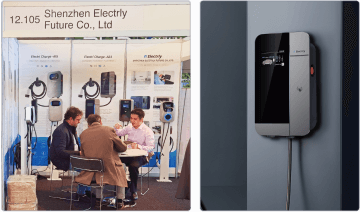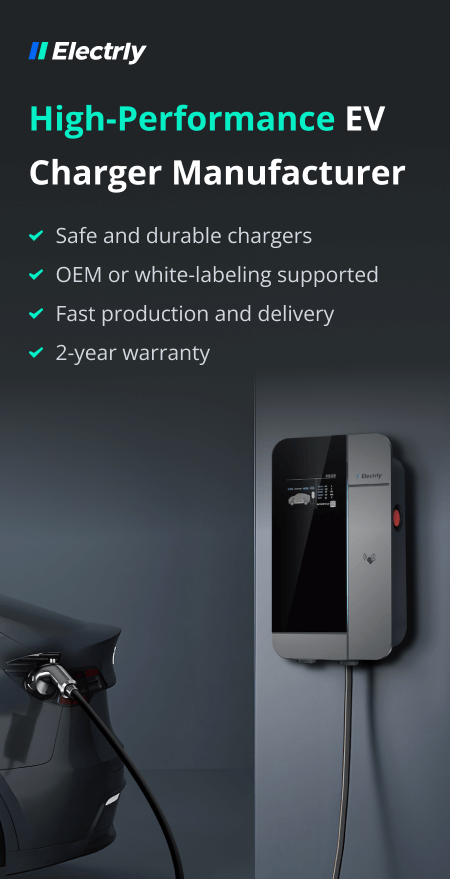Electric vehicles offer various benefits, and among them, the ability to recharge at home is a significant one that many EV drivers appreciate. Compared to refueling a petrol-powered car, charging an electric car is much simpler, as the process involves plugging it in and leaving it, without requiring payment on site or worrying about hazardous fumes or spills.
By connecting to the same electricity supply that powers household appliances such as lights or computers, EV owners can easily charge their vehicles at home. For home charging, you need to know two things: what type of charger to buy, and how much it will cost to install.
What Types of EV Chargers Are Available for Residential Use?
Currently, there are two types of charging systems available for home use:
- Level 1 charging uses a 120V household outlet, the standard outlet in your home which you use for everyday electrical needs. For charging an EV, this type provides about 5 km per hour of charging.
- Level 2 charging requires the installation of a dedicated Level 2 charger, which is much faster, adding 40 km for every hour charged.
Most EVs in the U.S. use a standard connection port, the SAE J1772, for both Level 1 and Level 2 charging.
You may also have heard about Level 3 charging or DC fast charging, which is not suitable for home charging since it requires a more powerful grid connection than that is found in private residences. These are the chargers usually found at EV charging stations outside and they can fully charge a vehicle in as short a time as 45 minutes.
Most hybrid and electric vehicles are supplied with a charger connection and also a standard plug for connecting through your regular home power socket, for Level 1 charging. This is fine if you just want to charge overnight, and it does not require any other equipment. However if you want a faster charge time at home you will need to install a Level 2 charger, usually a wall mounted box which you can conveniently locate on the wall of your home garage, either inside or outside.
Before you do that, you need to get an electrician to check your power supply to make sure your home has adequate electrical capacity for vehicle charging. Some homes have insufficient electric capacity for Level 2 chargers, and in that case a qualified electrician can add extra circuits to allow the capacity needed for Level 2 charging.
When choosing a Level 2 charger for home, there are some points to consider:
- Length of charging cable is important. These are available in various lengths, the most popular being 16 feet (5 meters) and 725 feet (7.5 meters). A shorter cable is easier to store but a longer cord is preferable if you sometimes need to park the car a bit further from the charger.
- Charging indoors or outdoors? You might always park inside a garage, or sometimes you may want to charge in your driveway, and not all chargers are suitable for outdoor use. If you want to install a Level 2 outside, you need to make sure it is rated to work safely in rain, snow, and cold temperatures, depending on where you live.
- You can also decide to install the charger permanently, connected directly to your power supply, or you can have a removable one that connects with a plug to a wall socket.
- Another factor, related to how much you want to pay for the charger, is the amount of power it can supply in terms of amperage. Level 2 charger models are available in amperage between 15- and 80-Amps – the main difference being the higher the amperage the faster it will charge.
How Much Does It Cost to Install a Level 2 EV Charger at Home?
If you decide to install a Level 2 charger in your home, you next need to make sure you are fully informed about your options, including the various costs involved and potential savings through subsidies and tax credits.
Types of Chargers
The main difference in the types of chargers is the current level or amperage, and this depends both on your home's available electrical capacity, and your car's capacity. The charging capability of your vehicle includes not just the plug at the end of the charging cable but also the amount of power it is capable of accepting. Many hybrid cars, for example, charge at a lower power rate, so there is no need to spend more on a high-powered charger.
The higher the amperage, the faster the car will charge, so a charger that delivers 16 amps will give a driving range of 12 miles for each hour of charging, while a 50 amp charger will give three times as much, 37 miles per hour of charging.
Apart from Tesla, every EV in North America uses the J1772 connector for Level 2 charging. Tesla vehicles all include an adaptor cable, allowing Tesla vehicles to utilize any charger with a J1772 connection. Based on the amperage level, Level 2 chargers generally cost an average of $500 to $800, plus installation.
Hardwired or Plug-In
In terms of installation, there are hard wired wall mounted chargers and also portable plug-in chargers. A hard-wired and wall-mounted charger is a permanent fixture requiring an electrician to install, but there is also an option for a portable unit that plugs into a 240-volt socket and just hangs on the wall. The advantage of portability means you can take the charger with you if you need to move it to a different location within the garage or if you change houses.
Electrician Costs and Permits
All home Level 2 chargers require a 240V outlet, and whether it is a plug-in or hardwired, you will need to use an electrician. Installing it yourself runs the risk of getting hurt or starting a fire if the proper safe installation techniques are not followed correctly. The average cost of installation varies depending on the time and electrical work it takes to install either the wall mounted charging station or the 240v outlet for a plug-in model, and can range from $250 up to $1.000
Most cities and municipalities require a permit for a Level 2 charger installation. This ensures the electrical work is done by a qualified electrician and that all safety measures are being followed. Permit applications usually require an electrical plan, a load plan, and other relevant information. These fees vary by location and can range from $50 to $250, and are often calculated as a percentage of the total installation cost.
An important point is that without a permit your home insurance will probably be invalid, so any subsequent problems will not be covered.
Government Subsidies and Tax Credits
Most U.S. states offer rebates or grants for home installation of Level 2 chargers, partly offsetting the total costs. The rebates in general are around $350 to $500. There is also a Federal tax credit available for 30% of the total cost including hardware and installation, up to a maximum of $1,000. The IRS form 8911 advises you how much you might receive as a tax credit, and it is important to keep the receipts for when you file your taxes.
What Are the Costs of Charging an EV at Home?
The usual costs of charging your car with a Level 2 charger at home depends on where you live, how much your electricity provider charges, and the time of day you use the charger. The cheapest method is generally to charge overnight, when you can get off-peak rates.
To get a good idea of charging costs in different areas and for different vehicles, you can check the Environmental Protection Agency (EPA), which gives electrical consumption rates for all EV models, and tells you how many kilowatts per hour (KWh) it takes to drive an EV for 100 miles, and the cost based on average electricity rates in different states and cities.
Electricity bills usually state the cost per KWh, and how much you have used for the month. When you charge an EV for the first time (and subsequent times) you can compare the KWh used to previous bills without EV charging and work out how much extra the EV costs.
If you spend a bit more on the hardware and get a Smart Charger it will record the KWh used so you can calculate an accurate cost. However, to get an average cost is fairly simple. Collected statistics show that most EVs charged at home use 7.2 KWh of electricity, and use an average of 0.35 KWh when being driven. The average car in the U.S. is driven 38.4 miles per day, which equates to a use of 13.4 KWh per day, or a monthly average of 405 KWh.
The weather can also have a major effect on the time and cost of charging. It has been found that very cold weather can affect the performance of an EV's battery, and restrict its ability to charge. When the outside temperature mercury dips to 20°F and below, and the car heater is used, the average EV loses around 41% of its normal range and takes longer to charge.
Studies have found that at 20°F with the heater running, it can cost an extra $25 per 1,000 miles driving, compared to the regular cost of using the vehicle in 75°F weather. The EV's range will also be affected by extremely hot weather especially when using the car's air conditioning.
Conclusion
Installing a home EV charger is a great idea, and people find them so much more convenient than having to drive to a charging station and wait around while it charges, although on a trip there is no other alternative.
Of course there are costs for this convenience, including the hardware, the permits, and the installation cost, but fortunately there are incentives to encourage people to install home based chargers, including Federal tax credits and rebates.
Having a home charger means you can charge your EV overnight while you sleep, or while relaxing at home during the day, and as the EV becomes more popular, it is easy to imagine that the 240V outlet for a Level 2 charger will become a standard fixture in homes across the U.S., just like a clothes dryer or deep freezer.


